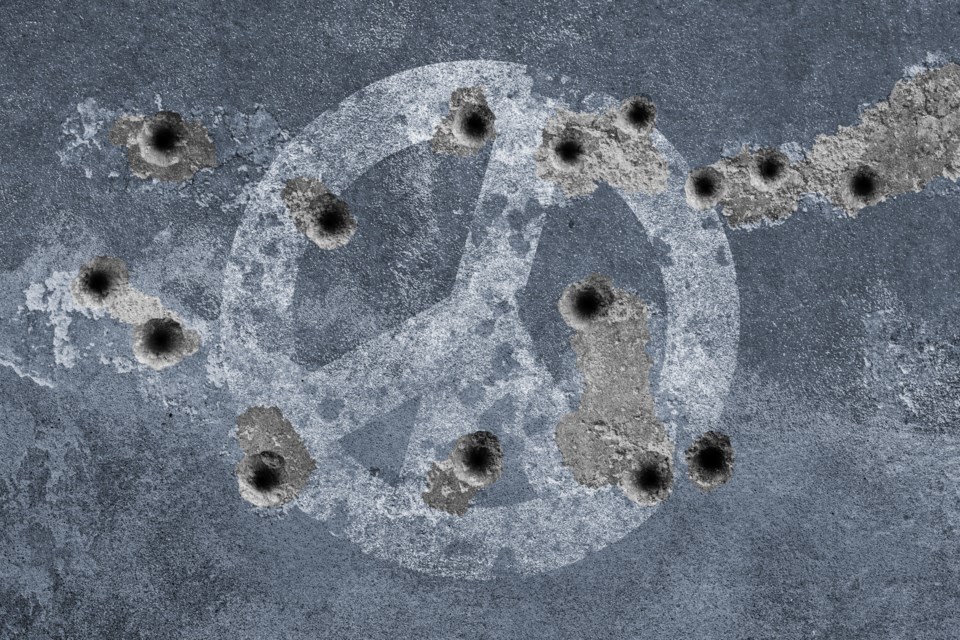The Middle East, with its complicated conflicts, has been of interest since my young years.
This region is known for its tensions with few right decisions and a lot of wrong ones made in attempts to resolve the issues. Power is usually the main and often the only leverage.
The Saturday Hamas attack – in which thousands of innocent people were killed, more were injured, some taken as prisoners, and after which Israel declared war – became another heartbreaking loop in the development of the Palestinian-Israeli crisis.
The Hamas surprise attack on Israel seemed well-planned and was carried out with extreme cruelty and precise timing. On a holiday, right after the 50th anniversary of the beginning of the War of Yom Kippur, which started with the last such surprise attack.
The Hamas co-ordinated hits came after months of worsening tensions over violence at al-Aqsa Mosque – a sacred Muslim site in the heart of Jerusalem. The experts say Iran, which is complicit in funding Hamas and providing weapons to it, might also have to do with the timing, as the attack was carried out when an impending deal between Israel and Saudi Arabia was nearing completion, which would mean changes and a prospect of wider peace for the the Mideast (a deal which now seems much farther away from being signed).
The Israeli war on Hamas is developing and it's hard to judge what we're going to see, but there are a lot of things to be concerned about. First and foremost, the surprise attack showed that Israel was not as prepared and not as almighty, as it made its neighbours believe it was.
One doesn't need to be a military expert to understand the value of the image of a powerhouse. Of course, at some point, that power has to be demonstrated to establish the status. But after that, as long as the party can maintain the powerhouse facade despite attempts to break it, they will be somewhat untouchable. However, once the facade is broken, bigger-than-ever efforts are needed to reclaim the status.
So, while the Hamas attack might seem, to a point, to be suicidal, it might have broader effects in the sense of demonstrating the Israeli weaknesses, which may lead to further instability in a complicated region. Even if no states officially enter the war, there are more than enough options with numerous active terrorist and militant groups in the neighbouring states.
According to the conflict escalation theory, every new move has to be stronger than the previous one by the opposite party. Israel, in response to the attack, claimed it is now in a state of war, bombing and gun battling the Gaza Strip. The next move, if any was planned, would have to be stronger. And it's hard to imagine the Arab groups did what they did without a plan for further escalation.
This conflict occurred just weeks after Nagorno-Karabakh, another region historically in question between Armenia and Azerbaijan, was overtaken by Azerbaijan. It launched an attack on Sept. 19 and claimed the enclave in a day, causing nearly the entire ethnic Armenian population (estimated at over 100,000 people) to flee. This clash also happened after months of worsening instability in the region.
Like in any contemporary conflict, there are more parties involved here. Azerbaijan has traditionally been backed by Turkey, while Iran, the central state on the Asian continent, explicitly threatened to use force if any changes to the Armenian border occur. The Russian absence in the latest Nagorno-Karabakh conflict (the region, which was a part of the Soviet Union and has traditionally been in the Russian orbit) was striking, but probably somewhat expected in current circumstances.
The nature of the two conflicts differs, but I'm afraid they do have something in common.
As the Russian invasion of Ukraine continues, the somewhat balanced global order gets shakier, and the regional, historic, and often ethnic conflicts start lifting their heads. While Russia focused its forces on destroying its one-time ally and neighbour, and the world is concentrated on putting pressure on the Kremlin without provoking a nuclear war, regions with unresolved, frozen conflicts may take advantage of the opportunity.
So, the fragile post-Cold War order might be becoming a notion of the past, opening the way to something new (or well overlooked old). I just hope, if more conflicts are coming, we will still have enough resources to prevent ethnic cleansings, which are an almost intrinsic part of those clashes.




